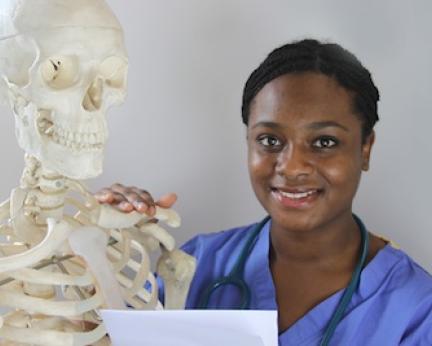Medicine seemed like a distant, unattainable dream reserved only for the grammar, private or public school-educated or the ‘lucky few’ who came through the state school system. I have done a lot of growing since then, and I have come to find that with enough commitment and support it is possible to enter and succeed in medical school, regardless of your background.
I went to a non-selective state school in South London from year 7 all the way to year 13. It was a long and challenging ride but was invaluable in preparing me to be the kind of student that I am today. I went to a school that had a high staff turnover which meant that at times there was a shortage of staff and I had to teach myself large amounts of the curriculum. Being one of the few academically-minded students meant finding extra work to do outside of class to ensure I was challenging myself enough to get the highest grades. Also, my school does not have a tradition of sending students to medical school. I am the second person from my school to go to medical school, the first entering medical school ten years before I did. This meant I had to be extremely proactive in seeking out mentorship and placement opportunities in order to maximise my chances of getting into medical school. These great character-forming experiences taught me the much needed work ethic, focus and drive that are essential to obtaining a place at medical school. I truly believe that being in an environment where not everyone saw the importance of hard work or academic attainment made me value opportunities more when they came along.
I definitely had help along the way. I was very fortunate to have several supportive teachers who encouraged and stretched me intellectually and in my extra-curricular activities. A group of teachers at my school provided me with several books on personal statements, entrance exams and interview technique, and helped to cover the costs of entrance exams; it is definitely worth asking if such support is available. One teacher in particular, who had a lot of experience with medical school applications, mentored me. She kept a watchful eye over me academically, read through my endless personal statement redrafts and gave me useful resources for interviews.





